Should you separate works of art from the artist?
That's a question loads of people have been asking in the era of #MeToo.
It's been asked of painters, writers, singers, movie actors and directors.
It is also a central question in Todd Field's Oscar nominated movie 'Tar' which charts the dramatic downfall of a celebrated classical conductor.
Cate Blanchett delivers a towering performance as Lydia Tar, an arrogant yet undoubtedly gifted musician and Maestro at the Berlin Philharmonic who also has a pattern of questionable behaviour.
The Australian's performance is so meticulous, so towering, so immersive that it may be the closest we have seen any actor come to matching Daniel Day Lewis' intensity since he retired from acting.
It is also a huge performance in an impressive, yet unquestionably flawed film.
When we first see Tar in Field's third feature, she is asleep on a private plane bound for New York.
Someone, as yet unidentified, is streaming her live on a smartphone and is trading disparaging comments about her with another user on social media.
We later discover this is a glimpse of Tar just before her dramatic fall from grace.
However we first must go back in time to see her at the height of her fame to understand how she got to this place of disgrace.
Field does this by giving us a rather lengthy sequence where Lydia is being interviewed onstage about her golden career at an event organised by the New Yorker magazine.
She smugly revels in the adulation of the audience as she discusses the history of female conductors.
We learn Tar has plans for a live recording in Berlin of Mahler's Fifth Symphony.
There's an autobiographical book 'Tar on Tar' in the works as well and while she rattles off these projects, her assistant Noemie Merlant's Francesca Lentini mouths her pre-prepared answers to the questions from the back of the auditorium.
Afterwards, we see Lydia flirting with a woman following the event who flirts back.
This sequence is followed by a session with students at the prestigious New York music academy, the Julliard School.
We see her butt heads with Zethphan Smith-Gneist's Max over his choice of a new composition to conduct.
Lydia challenges him, asking why he has chosen a new work instead of trying to unearth something new in a piece by a celebrated composer like Bach.
His left leg twitching, Max states he could never conduct Bach's work on the grounds that he would find it problematic because the composer fathered 20 children.
Pissed off with his absolutism, Lydia dismantles his argument by claiming you could rob society of thousands of great works of art because your yardstick is the wholesomeness of their creators' personal lives.
Humiliated in front of his fellow students, Max storms out of the workshop calling her a bitch.
During lunch with Mark Frost's Eliot Kaplan, an investment banker and manager of a fellowship he runs for her, there's a hint of the trouble to come when he reveals that he is dealing with a complaint from a student who benefitted from the program but who Tar insists is mentally unstable.
Returning to Berlin, Lydia juggles composing her music and preparing for the orchestra's live recording with her domestic life with her partner, the Philharmonic's lead violinist Nina Hoss's Sharon Goodnow and their young daughter Mila Bogojevic's Petra.
Lydia is irritated by Allan Corduner's obsequious assistant conductor Sebastian Brix and massages the ego of Julian Glover's Andris Davis, her predecessor who she frequently meets for lunch.
We later learn she is paying for his chauffeur under the pretence that the cost is picked up by the board of the Berlin Philharmonic.
Auditions are held for a new cellist which brings Sophie Kauer's Russian Olga Metkina into Lydia's orbit.
However Sharon soon becomes suspicious of her partner's intentions towards Olga.
The Maestro becomes increasingly twitchy too about the questions being asked about her dealings with the Kaplan Fellowship student Sylvia Flote's Kirsta Taylor.
She doesn't treat her assistant Francesca well but relations between them become increasingly strained after she asks her assistant to delete all email correspondence with Krista on their laptops.
It's only a matter of time before serious questions are raised about the Taylor case.
But will it ultimately destroy her career?
It's been 16 years since Field last directed a feature 'Little Children' with Kate Winslet, Patrick Wilson and Jennifer Connelly.
Like that and his excellent 2001 debut 'In The Bedroom,' he really dives into the psychology of his characters in 'Tar' - in this case, the compulsions that drive and ultimately undo Lydia's career.
It's a very in-depth study of a creative force who has deep, deep flaws - with Field deliberately setting up his lead character's humiliating fall.
The Best Director and Screenplay nominee and his Oscar nominated cinematographer Florian Hoffmeister have fun playing with the cold, dark palettes of Berlin and New York's architecture and cityscapes in late autumn/early winter on a manner that recalls Darius Khondji's work on Michael Haneke's 'Amour'.
Every frame of the film is filled with carefully constructed shots which enable Hoffmeister to capture the action.
The camera rarely moves, mostly observing events from a fixed position with long takes that give the cast the freedom to roam.
And when the camera does move, you are very conscious of it.
Hoffmeister and Field riff throughout the movie on a recurring motif of characters standing at mirrors while their reflections are talking - as if to emphasise image and reality.
All of this goes to show that Field is a director who fully understands the capabilities of cinema as a visual storytelling medium.
And yet.. the Pomona-born writer, director and actor has constructed a movie that revels in dialogue - especially dialogue which exposes intellectual vanity.
Audiences used to quick edits in Hollywood movies may struggle with the film's very wordy opening exchange as she is interviewed at the New Yorker event.
It's a bold gamble by Field to begin a movie with a piece of verbal ping pong and then to follow it with a similar exchange in the Julliard School about the artistic merits of Bach.
As a result 'Tar,' while it is undoubtedly a movie of intellectual heft, risks irritating and isolating some viewers.
It's true it's a little wordy and could do with a bit of trimming.
But ultimately what obscures this flaw is Blanchett's mesmerising performance and the movie's unusual take on #MeToo, given Lydia's gender and sexuality.
And while conservatives may love Lydia's dismissal of Max early on in the film as a real jab at wokeness and while they may champion the film as a fierce denouncement of cancel culture, a closer reading of Field's film shows it is a lot less conclusive.
Lydia Tar is a huge talent but as the film wears on, we realise how much she has abused her position.
Far from being a victim, her behaviour is bordering on the predatory but should we still dismiss her body of work?
In recent weeks, Field's film and Blanchett's performance have attracted some controversy, with claims by the Vienna Radio Symphony Orchestra Maestro Marin Alsop that elements of her personal and professional life have been distorted to create the character of an overbearing, pretentious and abusive woman conductor.
The director and his star have chosen not to comment but regardless of how accurate this is, Blanchett has delivered an undeniably staggering performance of great vitality - a career best from the two times Oscar winner.
Her performance overshadows everyone else in the film - much like Daniel Day Lewis as the oil prospector Daniel Plainview in 'There Will Be Blood' or Bill the Butcher in 'Gangs of New York'.
And like Paul Dano in the former, only Nina Hoss avoids being totally eclipsed thanks to an intelligent performance as Lydia's long suffering partner Sharon.
Frost, Glover, Corduner, Merlant and Kauer meanwhile dutifully play third violin to Blanchett and Hoss.
Field understands the power of Mahler, Bach and Elgar's music and uses their works to further draw into the story an audience that becomes increasingly fascinated by the scandal engulfing Tar.
And while there is a slight misstep during Lydia's darkest hour, the film is still a compelling study of an artist undone by her flaws.
It's amusing to note the bunker style existence that Tar ekes out in the Berlin home she shares with Sharon.
But Adolf Hitler she ain't.
'Tar' isn't a perfect movie but it is definitely a work that is brimming full of ideas.
Not every one is executed as you might hope but the film certainly confirms Field as a talented and intriguing director operating on the fringes of US cinema.
His film's running time of two hours 38 minutes is a bit excessive and the film could do with being two hours long.
But don't let that put you off because if you stick with the film's deliberate pace, 'Tar' proves to be a rewarding watch that will have you mulling over its themes and its central performance for days.
Hopefully we won't have to wait another 16 years before Field directs his next feature.
We need more films with Field's ambition.
We need more films with the same willingness to experiment and desire to take all of us out of our Hollywood comfort zone.
'Tar' earns its Academy Award nominations by putting in the hard yards and to really appreciate this film so must the audience too.
('Tar' opened in UK and Irish cinemas on January 13, 2023)
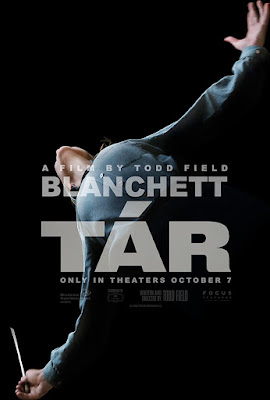
.jpeg)







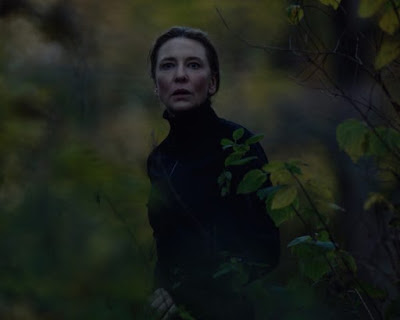

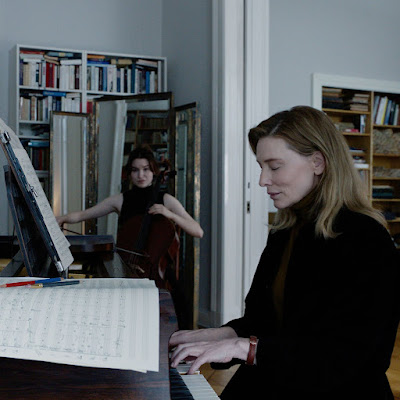
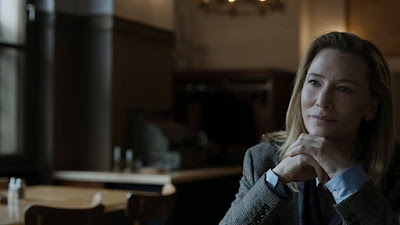

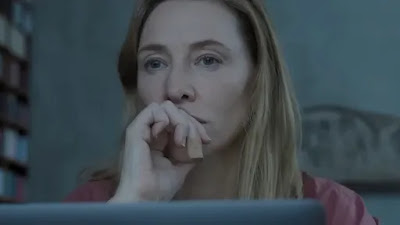


Comments
Post a Comment